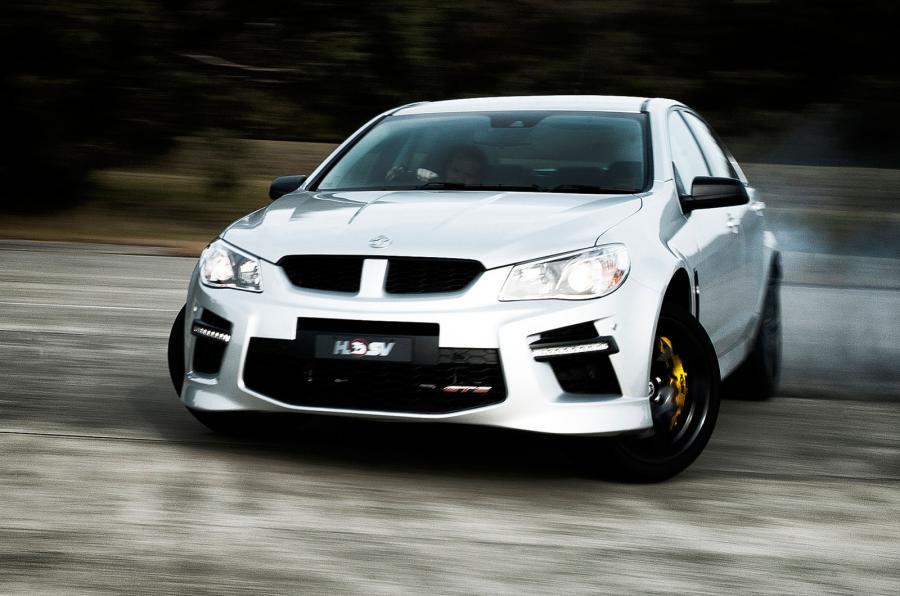I remember it well. I was in charge of the media launch for the new Holden VF Commodore, and it was the first day of introducing what was Australia’s most significant new car in a decade.
The road route was in the Blue Mountains in New South Wales. Earlier that morning, my opposite number at Ford had called me to say they had a "major announcement" at 11am. We hastily revised our programme so that all of the top-tier Australian motoring media were assembled at the coffee stop in time for the press conference.
Holden’s charismatic Canadian managing director, Mike Devereux, pulled into the car park at the wheel of his cherry red VF Calais just as the conference kicked off, and the media assembled around his car to listen to Ford’s news on its radio. The company announced it was to close its factories at Geelong and Broadmeadows, Victoria and that the VF Commodore’s core rival, the Ford Falcon, would die with them.
That was the first fatal blow to the Aussie car industry and one that would lead to Holden’s eventual demise just seven years later. I was there on an overseas development placement, away from my day job as head of press relations for Chevrolet UK, and was told I was being shipped out to GM’s Melbourne offices to launch six new cars in the space of year - something that sounded great fun.

But when I got there, the job was very different. Instead of launching new cars, I was thrown in at the deep end into a sea of government lobbying and political posturing. Australia was in the middle of a general election campaign and the domestic car industry was being thrown around like a tampered-with cricket ball.
GM had recently asked the Australian government for AUD 250 million of support (at the time, that was about £180 million), and the country’s Murdoch-dominated press had labelled it as a ‘bail-out’, a copycat of the car industry support package offered by the US government after the 2009 financial crash.





Join the debate
Add your comment
Holden death
Holden were doomed after the factory closed in 2017, why? after the loss of ZB Commodore and BK Astra hatch, all that was left was Trax (prod start 2013) Colorado (prod start 2012) Trailblazer (prod start 2013) Equinox and Acadia, the last two from north America are sales flops! our showroom is a ghost town these days
honestly Holden be killed off has happened quicker than i expected. still hurts though
we have audi and Skoda as well, but they're not enough to sustain the business going forward. sales volumes for VAG group products isn't as bis as in the UK. need a volume seller to fill showroom, but the only good ones are already taken, so Centrelink here i come sadly
Holden death
Holden were doomed after the factory closed in 2017, why? after the loss of ZB Commodore and BK Astra hatch, all that was left was Trax (prod start 2013) Colorado (prod start 2012) Trailblazer (prod start 2013) Equinox and Acadia, the last two from north America are sales flops! our showroom is a ghost town these days
honestly Holden be killed off has happened quicker than i expected. still hurts though
we have audi and Skoda as well, but they're not enough to sustain the business going forward. sales volumes for VAG group products isn't as bis as in the UK. need a volume seller to fill showroom, but the only good ones are already taken, so Centrelink here i come sadly
Holden death
Holden were doomed after the factory closed in 2017, why? after the loss of ZB Commodore and BK Astra hatch, all that was left was Trax (prod start 2013) Colorado (prod start 2012) Trailblazer (prod start 2013) Equinox and Acadia, the last two from north America are sales flops! our showroom is a ghost town these days
honestly Holden be killed off has happened quicker than i expected. still hurts though
we have audi and Skoda as well, but they're not enough to sustain the business going forward. sales volumes for VAG group products isn't as bis as in the UK. need a volume seller to fill showroom, but the only good ones are already taken, so Centrelink here i come sadly